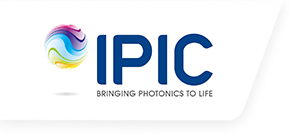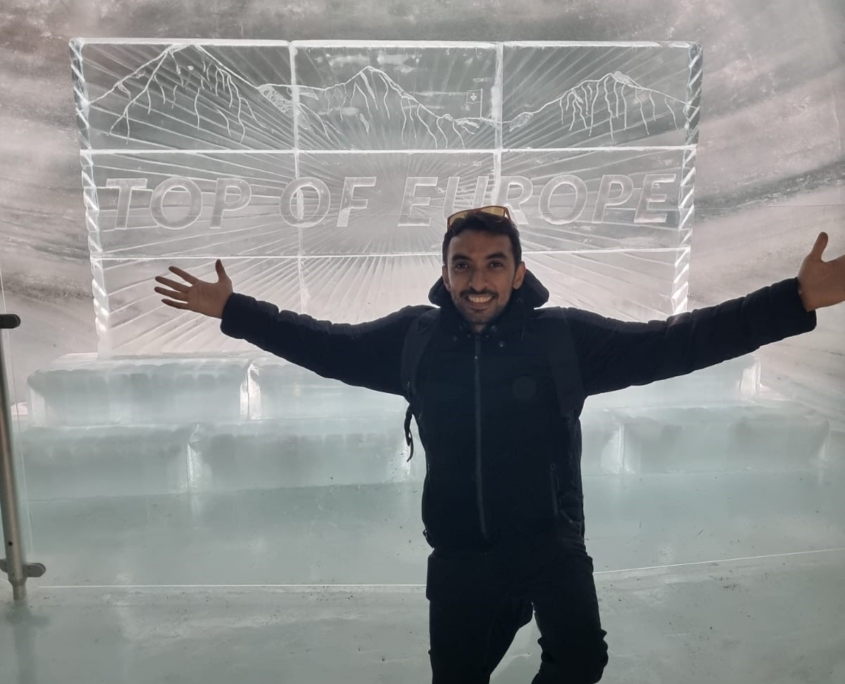Hi, I’m Abi Waqas. I’m a MSCA COFUND Sparkle fellow at Tyndall National Institute in Ireland, where I’m working on a novel integrated photonic delay line. I’m also an assistant professor (on leave) in the Telecommunication Department of Mehran University of Engineering and Technology (MUET) in Pakistan. I am also serving as a Chari of IEEE-IES, Karachi Chapter , R10 Region.
I’m originally from Hyderabad, Pakistan. I received my bachelor’s degree in Telecommunication Engineering from Aalborg University in Denmark and MUET, and my PhD in Information Technology from Politecnico di Milano in Italy. I’m passionate about research in the field of photonics, and I’m excited to be working on this project at Tyndall. My research interests include integrated photonics, optical phased arrays for 5G applications, statistical methods, and computer and wireless networking. I’ve published my research findings in prestigious journals and conference proceedings, and I’ve been awarded the best paper award at a highly reputable IEEE conference. I’m also a reviewer for numerous top-notch journals and conferences in the field of IT. I’ve secured significant national and international funding to support my research, and I’ve been involved in many national and international funded projects.
I’m excited to be a part of the Tyndall team and to contribute to the advancement of photonics research. I believe that photonics has the potential to revolutionize many industries, and I’m eager to be a part of that journey.
In school, I pursued a bachelor’s degree in Telecommunication Engineering, which I completed jointly at Aalborg University in Denmark and Mehran University of Engineering and Technology (MUET) in Pakistan. During my school years, I was already deeply intrigued by technology and the rapid advancements in the field. It was during this time that I became passionate about pursuing a scientific career. I found myself drawn to the world of engineering, particularly telecommunications, as I marvelled at the transformation of simple handsets into smart devices, which sparked my curiosity and fascination with technology.
My inspiration to become a scientist and pursue an academic career began to crystallize during my school years when I had the opportunity to explore and experiment with various aspects of technology. Growing up in the era of technological advancement, particularly witnessing the transformation of a phone handset into smartphones, instilled in me a curiosity to opt for engineering as my career. However, the various tributaries of the profession itself puzzled me with a striking question: Which engineering sector? It is a folk fable that nature conspires against you to make you meet your goal, and time plays a vital role in this ancient theory. My story is no different. It was in my early teens when my father got a company phone and a laptop. Back in 1996, these things were quite alien to me, but I somehow managed to use those items in hidden spaces of our home so that my parents would not scold me or try to restrict its usage.
Those were glorious and carefree days when my mind fully bloomed in mastering the essentials of computers, laptops, telephones, and mobile phones. In my residential colony every single day, I had a person who wanted me to troubleshoot their computer or phone. At times when I was surrounded by a deadlock, I used to ask myself, “Who makes these computers work? Who is responsible for the flawless working of these mobile phones?” I was greatly inspired by the ever-evolving world of telecommunications, computers, and electronics. What truly sparked my interest was the challenge of understanding how these devices and systems functioned seamlessly. I vividly remember the moments when I was troubleshooting computers and phones for friends and neighbours, and it became clear to me that I wanted to delve deeper into the field of Telecommunications Engineering. The desire to uncover the inner workings of these technologies and contribute to their development inspired my path toward becoming a scientist.
My journey to becoming a researcher has been both challenging and rewarding. I embarked on my academic journey with a bachelor’s degree in Telecommunication Engineering, where I excelled in my studies and secured the first position in the department. I was fortunate to be part of the Erasmus Mundus program, which allowed me to study in Denmark and broaden my horizons in the field. After completing my bachelor’s degree, I pursued a master’s degree in Telecommunication Engineering and Management, further honing my skills and knowledge. During this time, I had the opportunity to work as a Research Associate at MUET. This experience allowed me to work on real-world projects and gain practical insights into the field. I then ventured into the corporate world, working as a Network Analyst for ENI PAKISTAN. This experience provided me with valuable industry exposure and a deeper understanding of networking technologies.
Following my industry experience, I transitioned to a lectureship position at MUET, where I could share my knowledge and passion for the field with aspiring students. Alongside teaching, I continued to work on research projects, including the deployment of a free space optics link and authoring research papers. In pursuit of further academic excellence, I completed my Ph.D. in Information Technology, delving into cutting-edge research in photonics. This phase of my journey opened doors to international collaborations and opportunities, including a postdoctoral fellowship at the University of British Columbia in Canada and the prestigious Marie Skłodowska-Curie Actions (MSCA) COFUND fellowship programme Sparkle for photonics research in Europe.
While my journey had its share of challenges, including living abroad without my family, missing out on precious events, and adapting to new cultures and environments, these hardships also provided me with invaluable opportunities for personal growth and resilience. I believe I enjoyed doing my PhD the most, thanks to Erasmus Mundus LEADERS program. Studying in a multi-cultural environment provided me a great opportunity to first represent my culture and secondly to experience other cultures closer and identify the similarities and differences, as well as the positive and negative behaviours of the cultures.
Follow your passion: Identify what truly fascinates and excites you. Your passion will be the driving force behind your success and satisfaction in your career.
Explore and experiment: Don’t be afraid to explore different fields and gain diverse experiences. It’s through exploration that you may discover your true calling.
Seek guidance: Reach out to mentors, teachers, and professionals in your areas of interest. Their insights and advice can provide valuable direction.
Embrace challenges: Understand that the journey to a scientific or academic career may have its obstacles, but perseverance and determination will help you overcome them.
Continuous learning: Stay committed to lifelong learning. The world of science and technology is ever-evolving, so staying updated is crucial.
Be open to mobility: Don’t limit yourself to one location or institution. Researcher mobility, such as international collaborations and fellowships, can broaden your horizons and enhance your career.
Thinking back, if I could offer advice to my younger self, it would be to choose the right place to do the right things. Recognize that being in the right environment and pursuing the right path is crucial, as misalignment can lead to lifelong consequences. Remember that luck also plays an important role, so don’t worry excessively about every twist and turn in life. As for valuable advice received from others, my mother’s prayers were a constant source of composure and focus throughout my journey. I also had the privilege of discussing my career options with my uncle, Rafique Memon, who provided valuable insights. Additionally, my mentors, including Prof. Dr. Bhawani, Prof. Dr. Aftab, Prof. Dr. Tauha, and many others, offered guidance that I deeply valued in shaping my academic and professional path.
Sparkle has received funding from the European Union’s Horizon 2020 research and innovation programme under the Marie Sklodowska-Curie grant agreement No. 847652 and from Science Foundation Ireland.







